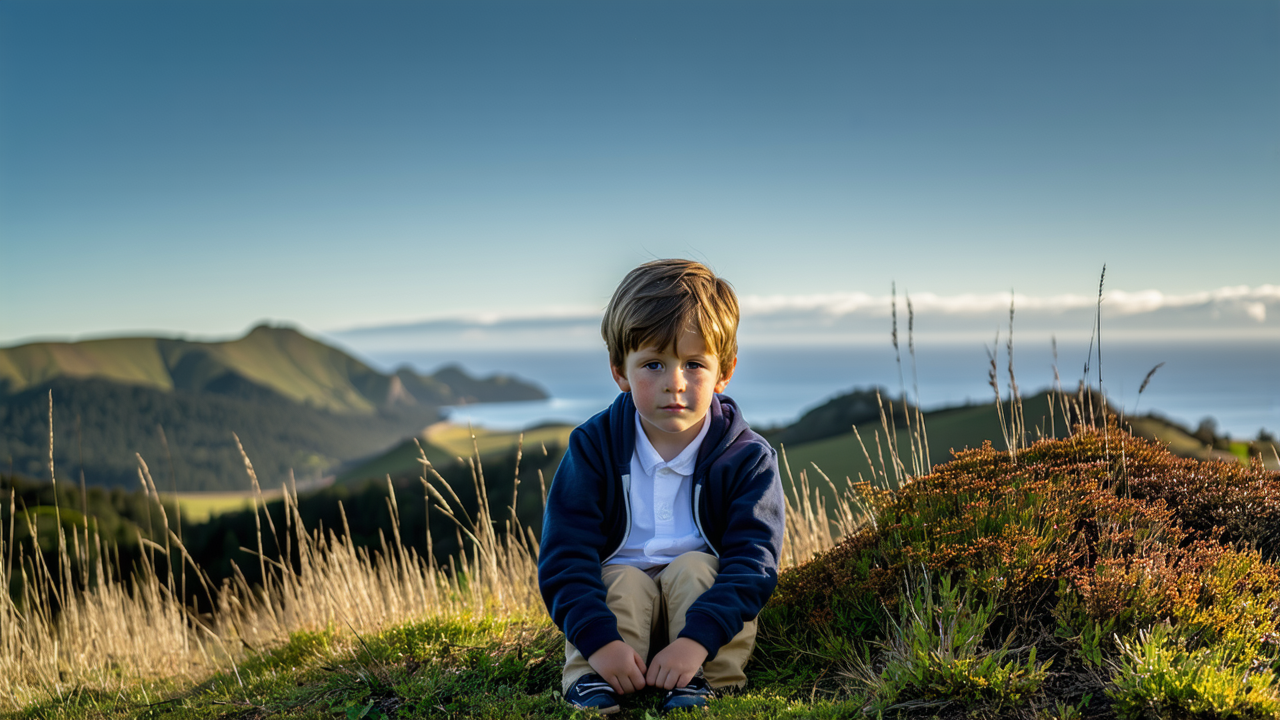7-Year-Old Joshua Meets’ Fight to Stay in New Zealand Amid Deportation Threat
7-Year-Old Joshua Meets’ Fight to Stay in New Zealand Amid Deportation Threat
By Natasha Gordon · 26 Jul, 2025 12:00 AM
A South African family’s 7-year-old son with autism and epilepsy is facing the threat of deportation from New Zealand, despite having called the country home for over five years. Joshua Meets, a special needs student at a school in Warkworth, is at the center of a legal and emotional battle that has captured the attention of the community and beyond.
The Meets family, consisting of five members, moved to New Zealand in February 2020 with the hope of building a new life. However, their journey has been fraught with challenges, including the denial of a residency application by Immigration New Zealand (INZ), citing Joshua’s complex medical condition as a potential burden on the state.
‘This is Home and This is Life’
Joshua’s mother, Ingrid Meets, a teacher at Mahurangi College, and her husband, an apprentice builder, have both made significant contributions to the community. Ingrid describes the family’s life in New Zealand as one of freedom and opportunity, where her three sons—Matthew, Joshua, and Daniel—have thrived academically and socially. The children have no connection to South Africa, where they were born, and have grown up in a culture that values inclusivity and support.
“This is home and this is life for them,” Ingrid said. “We are safe here. They can excel and won’t be seen as a burden on the system.”
A Legal Battle and a Petition
The family initially received three-year visas in 2020 without any issues. However, after Joshua was diagnosed with Lennox-Gastaut Syndrome, a severe form of epilepsy, their application for a resident visa was denied. In 2022, the family applied for the 2021 Resident Visa, a pathway for temporary visa holders affected by the pandemic, but INZ deemed Joshua’s health condition unacceptable for a waiver.
An appeal to the Immigration and Protection Tribunal in March 2024 found that special circumstances favored the family’s case. However, the appeal was ultimately denied by the Associate Minister of Immigration, Chris Penk, and later by the Minister of Immigration, Erica Stanford.
Humanitarian Appeal and the Ash Policy
The family is now making a final appeal on humanitarian grounds, which will be decided by the Immigration and Protection Tribunal. Ingrid Meets is calling for an exemption to New Zealand’s Acceptable Standard of Health (Ash) policy, which she argues is discriminatory and fails to align with New Zealand’s international obligations under the UN Convention on the Rights of Persons with Disabilities (UNCRPD).
“We have handed in our appeal document, and we’ve got 42 days to complete, get proof, and get support letters and build a case that we can now present,” Ingrid said. “This is not just about Joshua—it’s about all families facing this bureaucratic nightmare.”
The Road Ahead
The family has set up a Givealittle page and a petition to raise awareness and support for their cause. They are now in a state of limbo, waiting for the final decision on their appeal, which could take up to nine months. In the meantime, they are unable to plan for the future, unable to save for a house, or make long-term financial decisions.
“We can’t save money for a house deposit. We can’t plan for our future,” Ingrid said. “It’s just a timing issue. The Government knows what they’re going to expect with Joshua. So why is he being called a burden on the system?”
Call for Change
The Meets family is urging the government to reconsider its immigration policies, particularly the Ash policy, which they argue disproportionately affects families with disabled or chronically ill children. Ingrid believes that the policy should be reformed to reflect a more humane and compassionate approach.
“I understand that immigration is a policy,” she said. “But I think there should be a more humane or humanitarian side to it. You can’t judge people just on a tick-box system.”
As the family continues their fight, they remain hopeful that the Tribunal will see the merits of their case and grant them the opportunity to continue living in New Zealand—a country they have come to love and call home.
